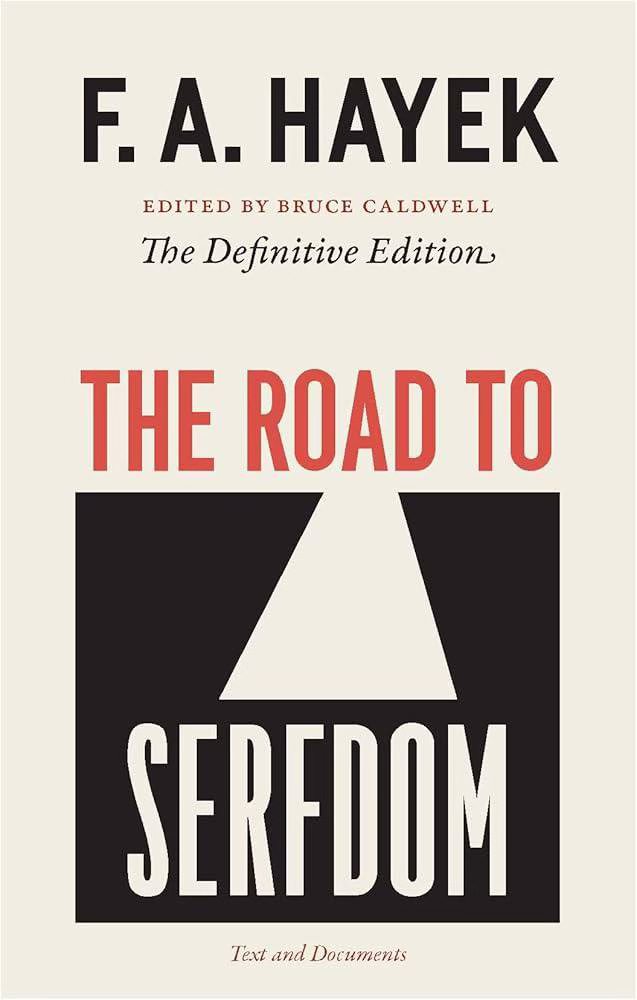Greetings Prosperous Souls,
I just finished F.A. Hayek’s book, The Road to Serfdom. As a fan of Milton Friedman and Thomas Sowell, I felt it was time to read one of the academics who inspired their writings. Hayek’s views did not disappoint.
As an Austrian economist who fled the rise of Nazism, Hayek enjoyed a long and prestigious career as a fierce proponent for individual liberty and the free market. Eventually, he was honored with the Nobel Prize in 1974.
One of Hayek’s core arguments in Road to Serfdom, which created many enemies in progressive circles, was that socialism, not capitalism, was a prelude to Naziism. But why? Central planning, a core tenant of socialism, argued Hayek, was what led to the complete collapse of free civilization.
During his time, Hayek’s views ran contrary to many opinions in the West where facism was seen as an outgrowth of the right. Its antithesis, communism, was proclaimed as an anomaly of the left. That meant socialism, the practice of involving more government policy, was simply an idea to be implemented. However, Hayek points out that socialism, facism, and communism are more similar than most realize:
Facism is the stage reached after communism has proved an illusion, and it has proved as much an illusion in Stalinist Russia as in pre-Hitler Germany.
And:
Few are ready to recognize that the rise of fascism and naziism was not a reaction against the socialist trends of the preceding period but a necessary outcome of those tendencies.
These statements are alarming. But what is the root poison of these ideologies? Central planning. It has nothing to do with left or right politics, but how much our leaders implement government policy to solve the problems facing society.
What’s the solution? Hayek maintains we must localize power as much as possible and keep things within the private sector. The economist points out:
“The more we try to provide full security by interfering with the market system, the greater the insecurity becomes; and, what is worse, the greater becomes the contrast between the security of those to whom it is granted as a privilege and the ever increasing insecurity of the underprivileged.”
Hayek found resistance amongst left-leaning politicians, and some argue that his predictions have proved to be inaccurate. Regardless, I found his mindset to be refreshing. And it was exciting to see an intellectual who influenced other greats like Milton Friedman and Thomas Sowell.
In summary, I found The Road to Serfdom to be a refreshing read. I’ll end this piece with my favorite quote from the book:
“From this the individualist concludes that the individuals should be allowed, within defined limits, to follow their own values and preferences rather than somebody else’s; that within these spheres the individual’s system of ends should be supreme and not subject to any dictation by others. It is this recognition of the individual as the ultimate judge of his ends, the belief that as far as possible his own views ought to govern his actions, that forms the essence of the individualist position.”
Embracing Individual Liberty,
Cory De Silva
About: Cory De Silva is an American poet, singer/songwriter, screenwriter, actor, and filmmaker. He has released two studio albums, acted in three films, and published a small book of poetry. He is a graduate of CSU Long Beach, and lives in Northern California with his wife, Colleen, and their son, Bryght.





